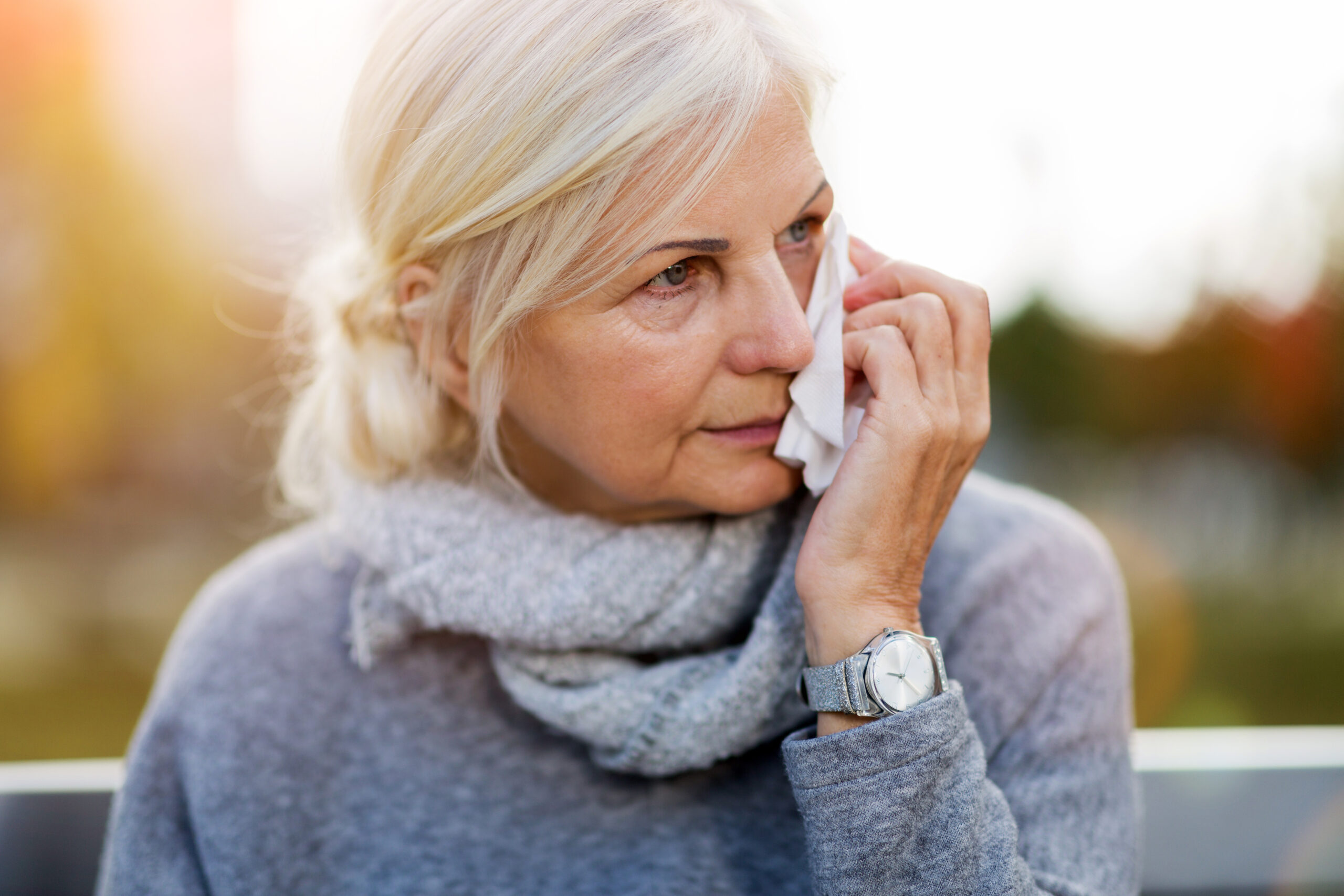Part II: Mourning and Honoring Loss in the Era of COVID-19

Coping with the loss of a loved one is a challenging, sometimes unpredictable process under all circumstances. We might know in our hearts that grieving looks different for each person, and yet still find ourselves longing for a clear path to help us navigate the sadness, confusion, and other feelings that arise as we mourn. In many ways, the rituals and ceremonies we participate in following a loss have provided that path. Funerals or memorial services, condolence calls, and periods of remembrance provide a predictable sense of tradition during an uncertain emotional time. They also help us stay connected and feel emotionally safe with other people whose lives have been touched by a shared loss.
Understanding the Grieving Process can Create Opportunities to Heal
In many ways, the rituals and ceremonies we participate in following a loss have provided that path. Funerals or memorial services, condolence calls, and periods of remembrance provide a predictable sense of tradition during an uncertain emotional time. They also help us stay connected and feel emotionally safe with other people whose lives have been touched by a shared loss. Yet the need for physical distancing during COVID-19 has led to many disruptions in how we mourn. People who have suffered losses during the pandemic have had to postpone services or stay separated from families due to travel restrictions, all while coping with heightened anxiety about their loved ones’ physical health. Bearing and coping with loss pose particular challenges at the present time, and so understanding more about the grieving process can create opportunities to honor and make meaning of loss without sacrificing the healing power of emotional connection to others.
Grieving is a Process that Requires Self-Compassion and Patience
One of the most important things to keep in mind about the process of grieving the loss of a loved one is that it is a process. Our emotional and physical attachments to our loved ones are a big part of our sense of well-being. When those attachments are disrupted by the death of someone we love, the emotions we experience can feel very unpredictable and include more than sadness. The need to remain physically isolated when loved ones are sick, or not being able to offer support in person to someone who is mourning can produce feelings of helplessness. The awareness that many people are falling ill and dying due to COVID-19 might also lead to guilt about whether some of the intense feelings of mourning should be pushed through or cast aside given how many others are also in mourning right now. Losing someone during a crisis can also lead to feelings of anger from a sense that the loss and isolation from a loved one during illness seemed unfair. Practicing self-compassion and acceptance of the feelings that are part of losing a loved one allows the grieving process to take its natural course, as you continue to discover and honor your relationship to the deceased.
Technology Offers New Options for Rituals and Communal Mourning
The rituals we have for mourning and celebrating the life of the deceased vary across cultures, but what they have in common is that they recognize the importance of being able to accept and offer support during a painful time. Rituals also allow for the reality of loss to settle in. Sharing stories and memories with others who are grieving in settings such as a wake or condolence visit allows us to begin the process of acceptance of loss while also creating space for our memories to be a source of comfort. While many rituals have needed to be postponed or canceled due to COVID-19, the important purpose they serve of staying connected and engaging with memories can still be accomplished through phone calls, virtual gatherings, or the creation of new rituals altogether, such as making scrapbooks or visual memorials. Making plans with loved ones to have an in-person service at a future date can also be helpful since the process of planning helps stay connected to others who are coping with loss, and with the feelings that are part of the process.
Routines Provide a Concrete Foundation Amidst Changing Emotions
It’s also important to maintain as much structure as possible following loss, and this too is a task that might seem more complicated as everyday routines are in a state of flux. Time can feel like it’s sped up, slowed down, or some combination of both following a loss. Keeping to routines around sleeping, eating, and spending time with friends and family provide concrete, predictable structure amidst the changing emotional work of processing loss.
If you are struggling to deal with feelings of grief, talking to a mental health professional can be helpful. If you or someone you know suffered a loss, Home Base is ready and available to serve you and your loved ones during this time. To learn more about our family, bereavement and support services, visit homebase.org/connect2care, or call our clinic at 617-724-5202.

About the Author: Dr. Brian Van Buren is a staff psychologist at Home Base. He has clinical and research interests in cognitive-behavioral and integrative treatments for PTSD and moral injury. In addition to his work with veterans and Service Members, Brian is part of the Home Base Family Team and provides couples therapy services.


 Home Base
Home Base